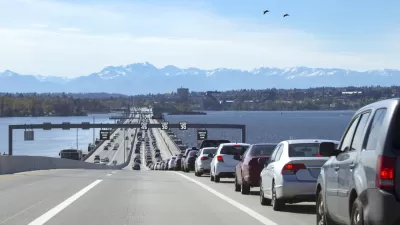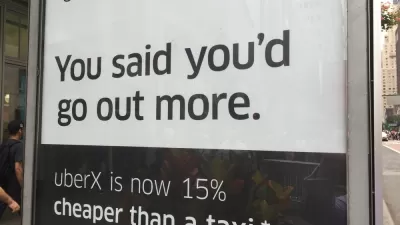A small group of test subjects, enabled with the use of a chauffeur, increased driving distances by a collective 83 percent.

Aaron Gordon shares news of research that attempts to duplicate the effect of rolling out a worldwide fleet of self-driving cars available for use by anyone with the money to pay for a ride.
Mustapha Harb, a Ph.D. candidate at the University of California Berkeley’s Department of Civil and Environmental Engineering, duplicated an autonomous future by hiring a bunch of chauffeurs to drive people around. "The chauffeur…will do the driving for you. And, just like the most optimistic AV future of fully autonomous robot cars zooming around, you don’t even have to be in the car," explains Gordon.
"Using 13 volunteers (a very small sample size due to budgetary constraints) from the San Francisco Bay Area who owned cars, Harb and his team studied their travel patterns using GPS trackers on their cars and phones for one week, then gave them a chauffeur for a week who would drive the participants’ personal vehicles for them. Finally, the researchers observed the subjects for a final week to look for any changes returning to their chauffeur-less life."
As for the findings, the study reports that subjects "increased how many miles their cars covered by a collective 83 percent [pdf] when they had the chauffeur versus the week prior."
The article includes a lot more context, in the form of other historical innovations in transportation that changed the world, as well as discussion of what the study's findings could mean for an autonomous future, should self-driving cars finally become a viable product at scale.

Alabama: Trump Terminates Settlements for Black Communities Harmed By Raw Sewage
Trump deemed the landmark civil rights agreement “illegal DEI and environmental justice policy.”

Planetizen Federal Action Tracker
A weekly monitor of how Trump’s orders and actions are impacting planners and planning in America.

How Atlanta Built 7,000 Housing Units in 3 Years
The city’s comprehensive, neighborhood-focused housing strategy focuses on identifying properties and land that can be repurposed for housing and encouraging development in underserved neighborhoods.

In Both Crashes and Crime, Public Transportation is Far Safer than Driving
Contrary to popular assumptions, public transportation has far lower crash and crime rates than automobile travel. For safer communities, improve and encourage transit travel.

Report: Zoning Reforms Should Complement Nashville’s Ambitious Transit Plan
Without reform, restrictive zoning codes will limit the impact of the city’s planned transit expansion and could exclude some of the residents who depend on transit the most.

Judge Orders Release of Frozen IRA, IIJA Funding
The decision is a victory for environmental groups who charged that freezing funds for critical infrastructure and disaster response programs caused “real and irreparable harm” to communities.
Urban Design for Planners 1: Software Tools
This six-course series explores essential urban design concepts using open source software and equips planners with the tools they need to participate fully in the urban design process.
Planning for Universal Design
Learn the tools for implementing Universal Design in planning regulations.
Jessamine County Fiscal Court
Caltrans
Institute for Housing and Urban Development Studies (IHS)
City of Grandview
Harvard GSD Executive Education
Toledo-Lucas County Plan Commissions
Salt Lake City
NYU Wagner Graduate School of Public Service





























